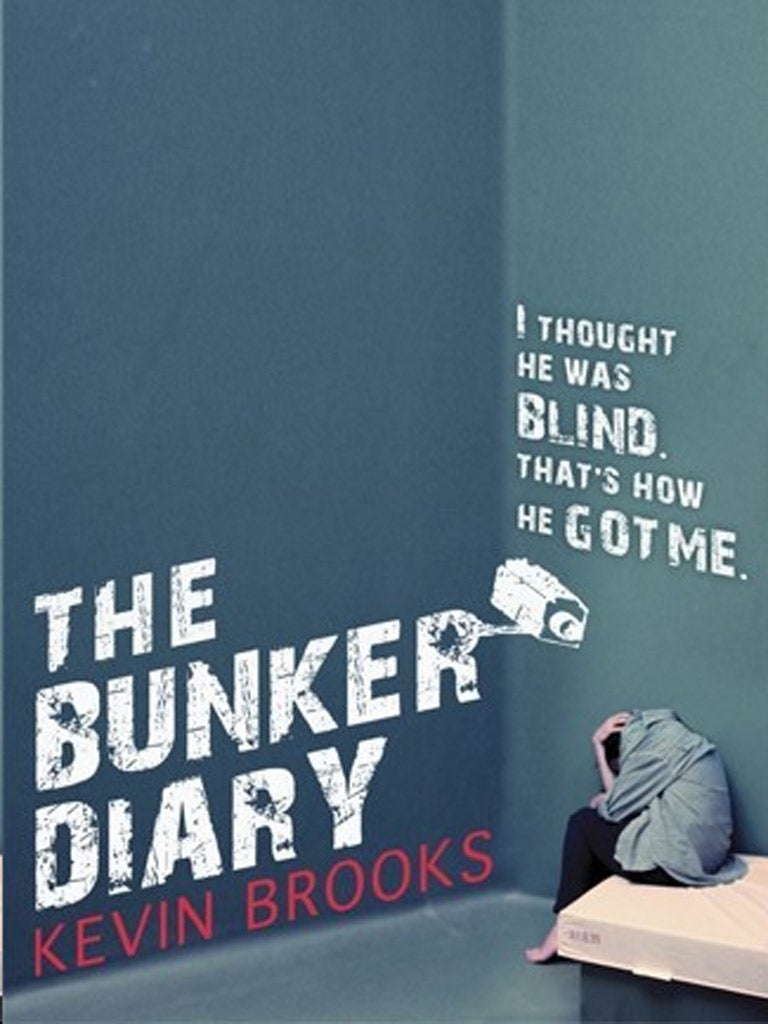
Your support helps us to tell the story
From reproductive rights to climate change to Big Tech, The Independent is on the ground when the story is developing. Whether it's investigating the financials of Elon Musk's pro-Trump PAC or producing our latest documentary, 'The A Word', which shines a light on the American women fighting for reproductive rights, we know how important it is to parse out the facts from the messaging.
At such a critical moment in US history, we need reporters on the ground. Your donation allows us to keep sending journalists to speak to both sides of the story.
The Independent is trusted by Americans across the entire political spectrum. And unlike many other quality news outlets, we choose not to lock Americans out of our reporting and analysis with paywalls. We believe quality journalism should be available to everyone, paid for by those who can afford it.
Your support makes all the difference.It was sad to hear how long it had taken young adult (YA) fiction author Kevin Brooks to publish The Bunker Diary, as he collected the Carnegie Medal for it. Or why it had taken so long, I should say. Ten years, he revealed, because no publisher would touch a YA book whose themes – kidnapping, illness, torture and drug addiction – didn’t offer enough “hope”.
Winning the medal must have felt like vindication for Brooks, and he had every right to make pointed comments about YA fiction not being for babies, and that young adults could well handle dark subjects. He also spoke out against putting stickers on covers to warn parents of gritty content – rather like cinema ratings – despite suggestions from some corners of society. It is a topic that I suspect might rear its head at the inaugural YA Literature convention next weekend, which is being curated by the Children’s Laureate, Malorie Blackman. The sticker debate is worth having, I think,
but it comes with moral baggage. Brooks’s fiction was reportedly labelled “sickening” by one critic. The implication is that it is inappropriate, perhaps harmful, for young minds. If we go with the premise that some themes are too dark for children though, where would that leave the Gothic brutality of Grimms’ fairytales, or the menace in Lewis Carroll’s Alice’s Adventures in Wonderland, or even the plague-and-death lyrics of nursery rhymes such as “Ring a Ring o’ Roses”? Should these have a sticker on them too? Bruno Bettelheim argued that darkness in fairytales provided vital psychological development for children in his seminal 1976 study, Uses of Enchantment. So is the real debate not about whether there are some themes to which young adults should not be exposed, but whether YA books need to provide hope?
Catherine Bruton, a YA author and teacher, thinks this is key. An animated class discussion on Lord of the Flies inspired her to write her most recent YA book, I Predict a Riot, about knife crime and the London riots. Her previous books have been about suicide bombers and family break-up. But dealing in dark themes doesn’t mean that the author abnegates all moral responsibility. For Bruton,
a YA story is a safe medium for navigating difficult aspects of life, but it has to offer hope for change, however dark, and however sad. So where does this leave Brooks?
I’m not sure that’s a question I can answer. I do wonder though, whether recent gritty YA themes – self-harm, teen suicide pacts, rape, incest– have something to do with the rate at which the YA market is growing. Nicholas Tucker, a former lecturer in children’s
literature, suggests the two might be linked, but is underwhelmed
all the same. “Adolescents have always had an attraction to the
depressive, given they often first experience depression themselves around this time. These books cater to such feelings, and are only there in such quantity because they sell. There’s nothing particularly brave about writing about gritty subjects now, given that
almost all the old literary taboos were broken years ago. What’s brave is to write an upbeat story...”
Tucker is exercising his right to disapprove of the market preponderance of YA mis-lit, but not disputing the author’s right to write it. The real, unresolved debate is whether YA fiction should have parameters, and if these can include the darkest, most hopeless of realities. It will be interesting to see what consensus, if any, emerges next weekend.
Join our commenting forum
Join thought-provoking conversations, follow other Independent readers and see their replies
Comments